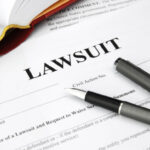Standard & Poor’s Ratings Services has lowered to ‘A-‘ from ‘A’ its long-term counterparty credit and insurer financial strength ratings on German life insurer Nuernberger Lebensversicherung AG and P/C insurer Nuernberger Allgemeine Versicherungs-AG, the core operating entities of Germany’s Nuernberger insurance group. S&P also lowered the long-term counterparty credit rating on the group’s holding company, Nuernberger Beteiligungs-AG (NBG) to ‘BBB’ from ‘BBB+’, and the ratings on subordinated debt issued by NBG were lowered to ‘BB+’ from ‘BBB-‘. The outlook on all entities was revised to stable from negative. “The downgrade reflects our expectation that current operating conditions constrain Nuernberger’s earnings prospects and will therefore make it difficult for the company to rebuild its capital adequacy, which has fallen to the low ‘A’ and upper ‘BBB’ rating categories,” explained credit analyst Ralf Kuerzdoerfer. S&P said: “These conditions include progressively lower investment returns, due to the capital market crisis; more challenging economic conditions, and continued intense competition in motor insurance, one of Nuernberger’s key business lines.” In addition S&P noted that the rating action reflect its “concerns about Nuernberger’s enterprise risk-management (ERM) capabilities which, albeit adequate, remain a relative weakness to the rating. The group’s risk-management efforts mainly focus on fulfilling the requirements set by the regulatory framework. Although Nuernberger’s long-term target is a more comprehensive ERM framework, the group does not yet have a holistic program and uses largely traditional concepts.” S&P did note that the company remains strong in the life sector. Kuerzdoerfer stated that the “outlook is stable because we expect management to defend the group’s strong competitive position. In life insurance, this should translate into continued above-market-average growth of new business in 2009 and 2010, with sound new business margins that exceed 10 percent.”
Standard & Poor’s Ratings Services announced that its ‘BB’ long-term counterparty credit and insurer financial strength ratings on Iceland-based insurer Tryggingamidstödin hf (TM) and its subsidiary Norway-based non-life insurer NEMI Forsikring ASA , will remain on CreditWatch with negative implications. They were originally put on the list on Oct. 7, 2008, “following the application by TM’s parent company, Stodir hf. (not rated), for bankruptcy protection,” said S&P. This was initially granted up until October 20, but has since been extended. “We consider that uncertainties remain over TM’s future ownership and financial position,” indicated credit analyst Peter McClean. We understand that Stodir has obtained an extension to the period of bankruptcy protection until Jan. 20, 2009, at which time we shall review the position. “However, we remain unable to predict with any certainty when we expect to resolve the CreditWatch status or the extent of any possible downgrade,” he added. “We will continue to monitor developments closely and take actions as appropriate.”
A.M. Best Co. has affirmed the financial strength rating of ‘A’ (Excellent) and issuer credit rating of “a” of Bermuda-based captive PMG Assurance Ltd., both with stable outlooks. The ratings “reflect PMG’s excellent capitalization, historically strong operating performance and strategic position,” said Best. PMG is the captive insurance company of Japan’s Sony Corporation. Best also indicated, however, that the “company’s exposure to potentially large natural catastrophe losses and its limited business profile as a capacity provider in the open reinsurance market,” should be taken into account as offsetting factors. “PMG’s results have been excellent in recent years,” Best continued. “While it has benefited from rate increases, the company, through prudent underwriting, has mostly avoided the major wind and flood related losses that have impacted the industry in the past five years. Whether servicing a portion of Sony’s insurance/reinsurance requirements or those of selected third parties, PMG’s management continues to focus on writing only profitable business with high-quality cedents. This strategy not only recognizes PMG’s distinct risk appetite, but also its limited operational resources and scale.” Best added that as a consequence it “does not expect PMG to expand its premium growth substantially but to maintain the company’s current position in the global reinsurance market as a specialized player with a wide geographic
distribution of risks.”
Standard & Poor’s Ratings Services has lowered its long-term counterparty credit and insurer financial strength ratings on Dublin-based Wagram Insurance Co. Ltd. to ‘A+’ from ‘AA-‘. S&P also removed the ratings from CreditWatch with negative implications, where they had been placed on Oct. 7, 2008. The outlook, however, is negative. S&P explained that its action “follows that on its parent, Electricite de France S.A. (EDF; A+/Negative/A-1), on Jan. 9, 2009. The downgrade of EDF reflects a weakening financial profile after the completion of the acquisition of U.K.-based nuclear generator British Energy Group PLC (BBB-/Stable/–) and the likely acquisition of 49.9 percent of the nuclear assets of U.S. utility Constellation Energy Group Inc. (BBB/Watch Neg/A-2).” S&P added that the “downgrade of Wagram is not due to any changes to the stand-alone characteristics of the insurance company. As Wagram qualifies as a captive insurer under Standard & Poor’s rating criteria, it is rated at the same level as its parent, and the ratings on Wagram will therefore move in step with those on EDF.”
A.M. Best Co. has placed the financial strength rating of ‘A-‘ (Excellent) and issuer credit rating of “a-” of Kuwait’s Al Fajer Retakaful Insurance Company KSCC under review with negative implications. Best said it took the rating actions following the recent default of one of Al Fajer Re’s shareholders, Global Investment House (GIH) on some of its debt. “GIH has a 20 percent direct shareholding in Al Fajer Re and manages a special purpose vehicle on behalf of other investors, which accounts for an additional stake in excess of 20 percent in the reinsurer,” Best explained. “Al Fajer Re’s main shareholder remains Dubai Islamic Investment Group with a 51 percent stake.” Best added that although it “believes that Al Fajer Re is likely to maintain a supportive capitalization for its current rating level, the under review status is expected to be resolved as soon as details regarding the potential implications on Al Fajer Re have been clarified.”
Was this article valuable?
Here are more articles you may enjoy.

 Supreme Court Allows More Transport Workers to Bypass Arbitration and Sue Employers
Supreme Court Allows More Transport Workers to Bypass Arbitration and Sue Employers  Johnson Controls Unit to Pay $750M to Settle ‘Forever Chemicals’ Lawsuit
Johnson Controls Unit to Pay $750M to Settle ‘Forever Chemicals’ Lawsuit  Report: Vehicle Complexity, Labor ‘Reshaping’ Auto Insurance and Collision Repair
Report: Vehicle Complexity, Labor ‘Reshaping’ Auto Insurance and Collision Repair  Poll: Consumers OK with AI in P/C Insurance, but Not So Much for Claims and Underwriting
Poll: Consumers OK with AI in P/C Insurance, but Not So Much for Claims and Underwriting 